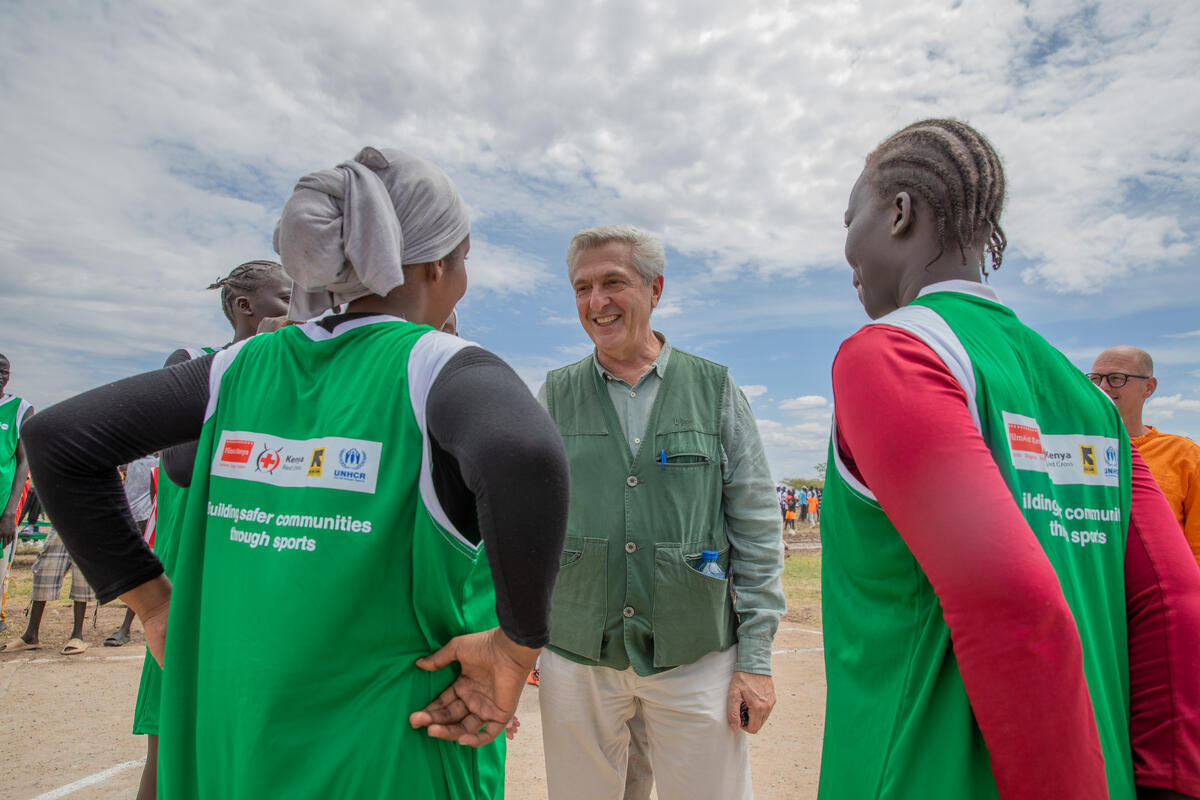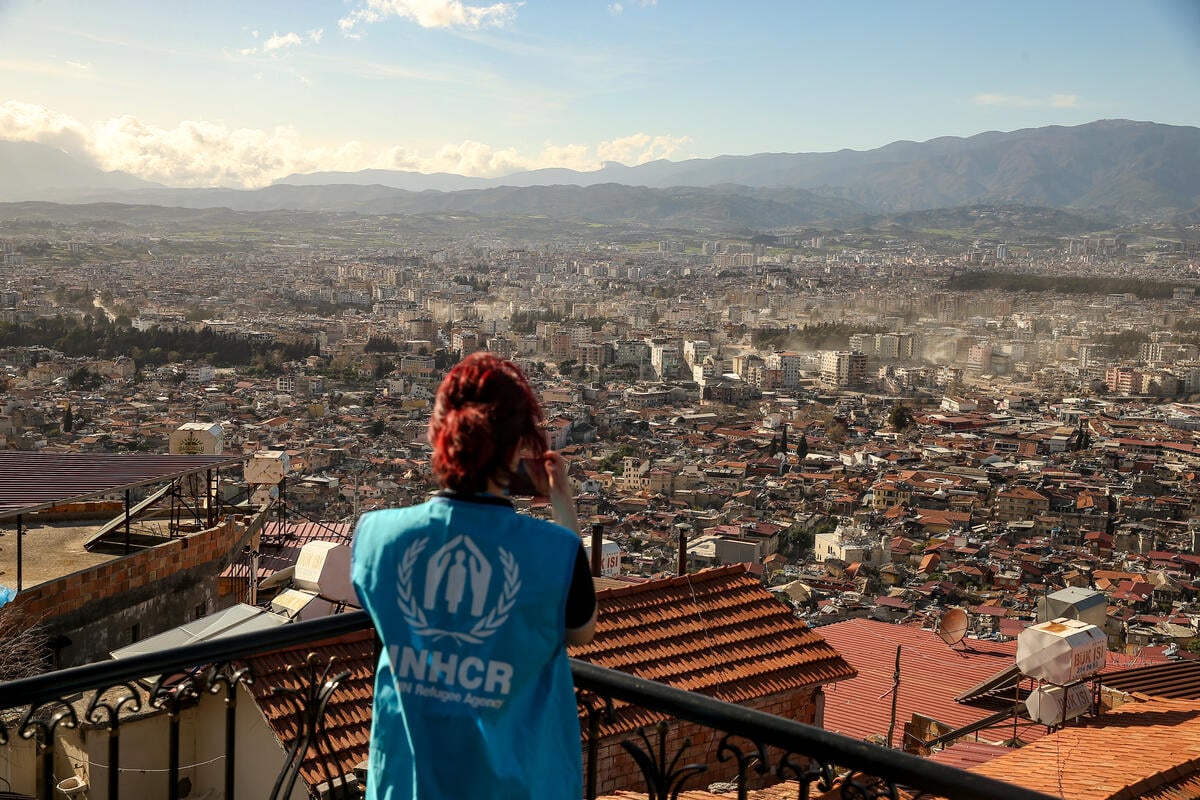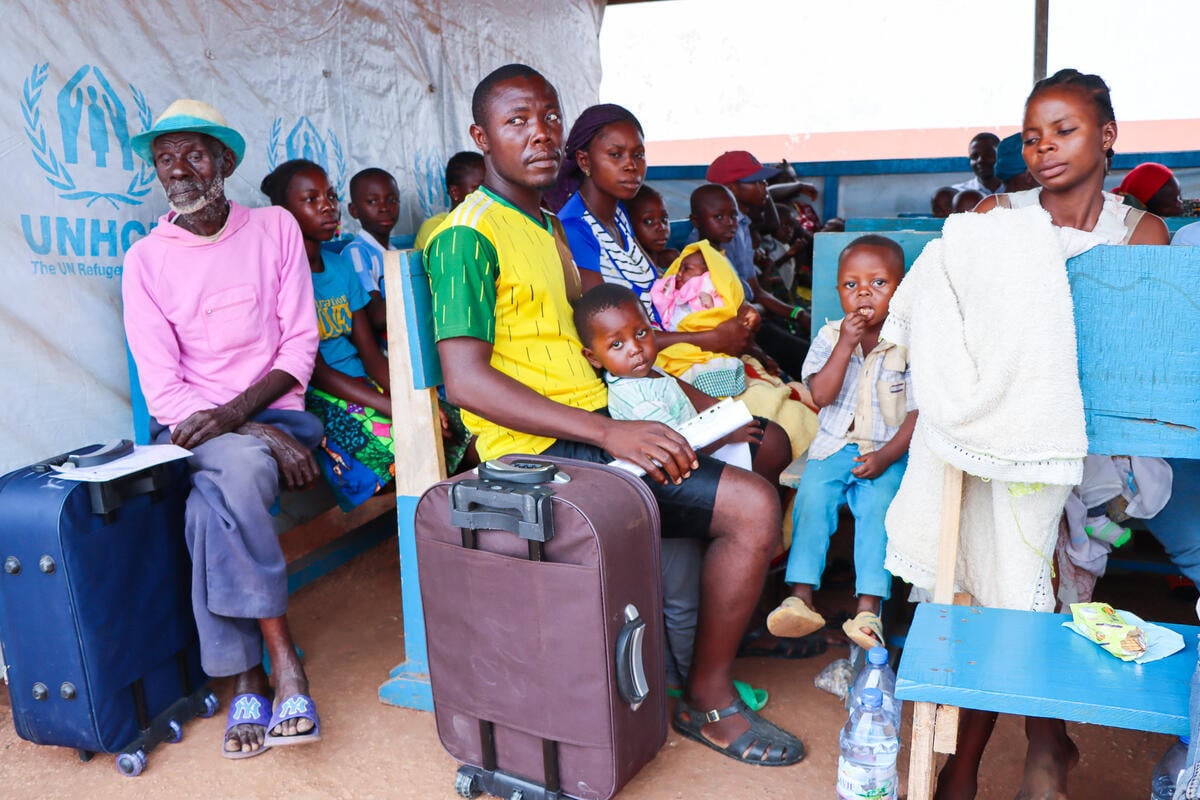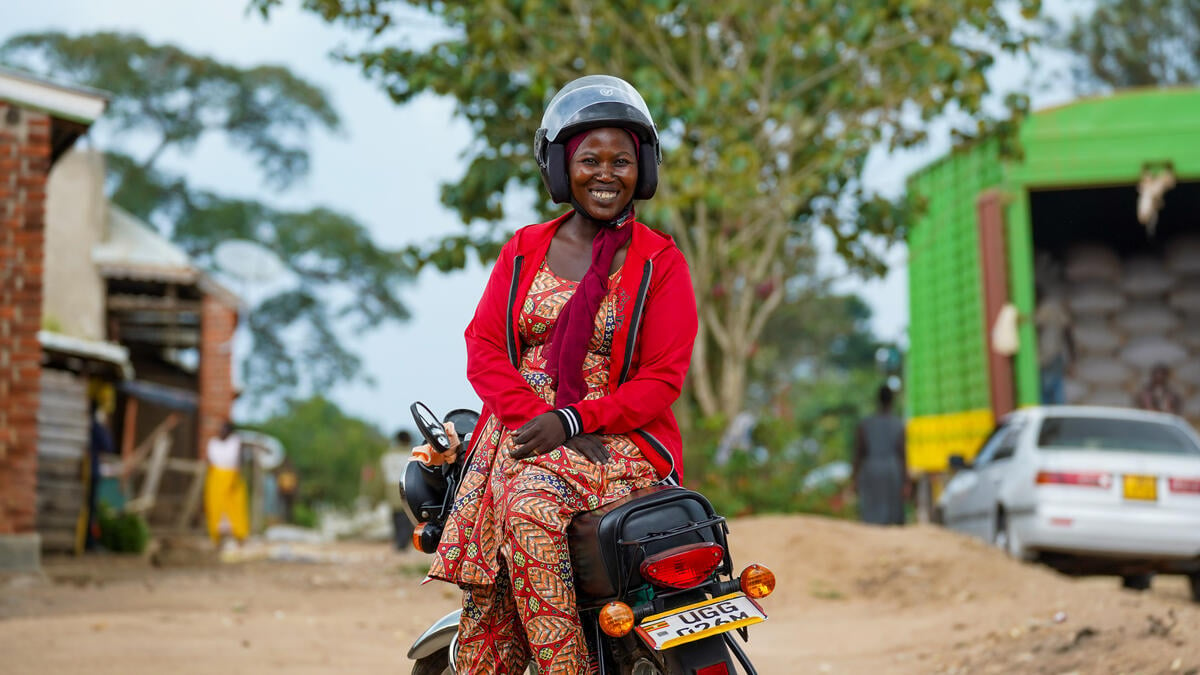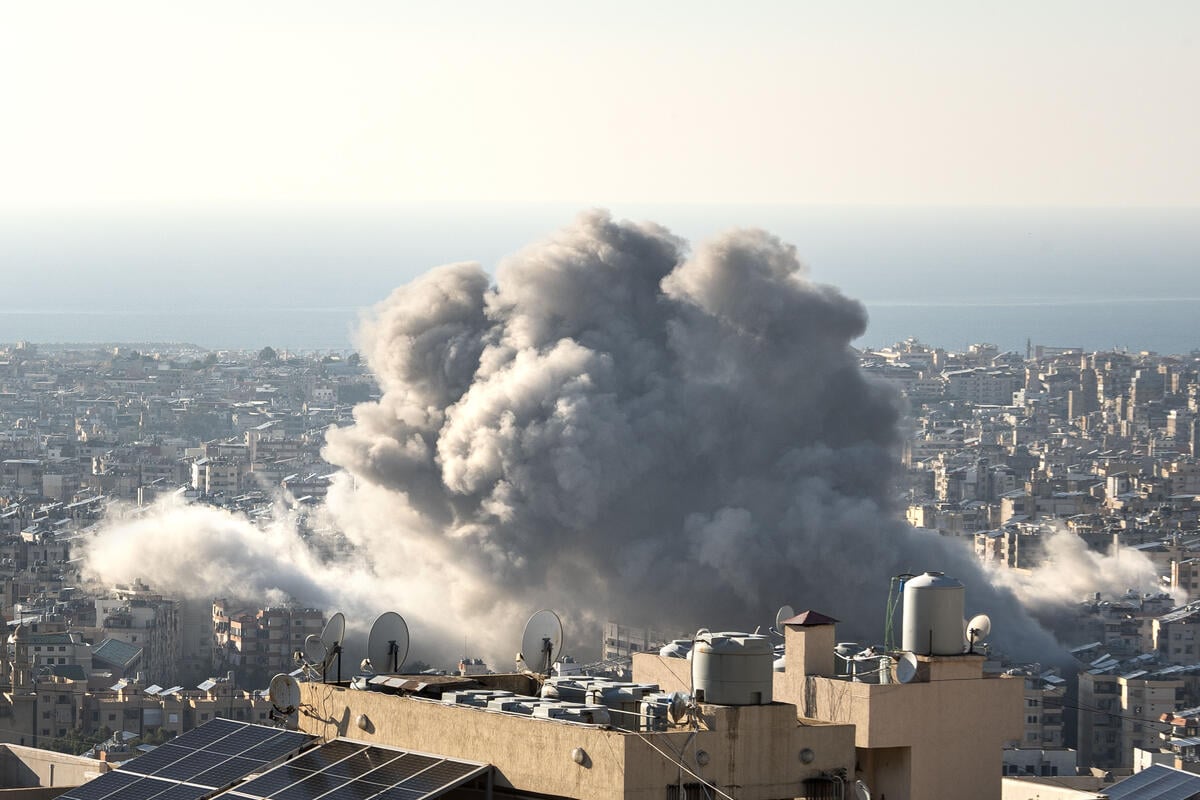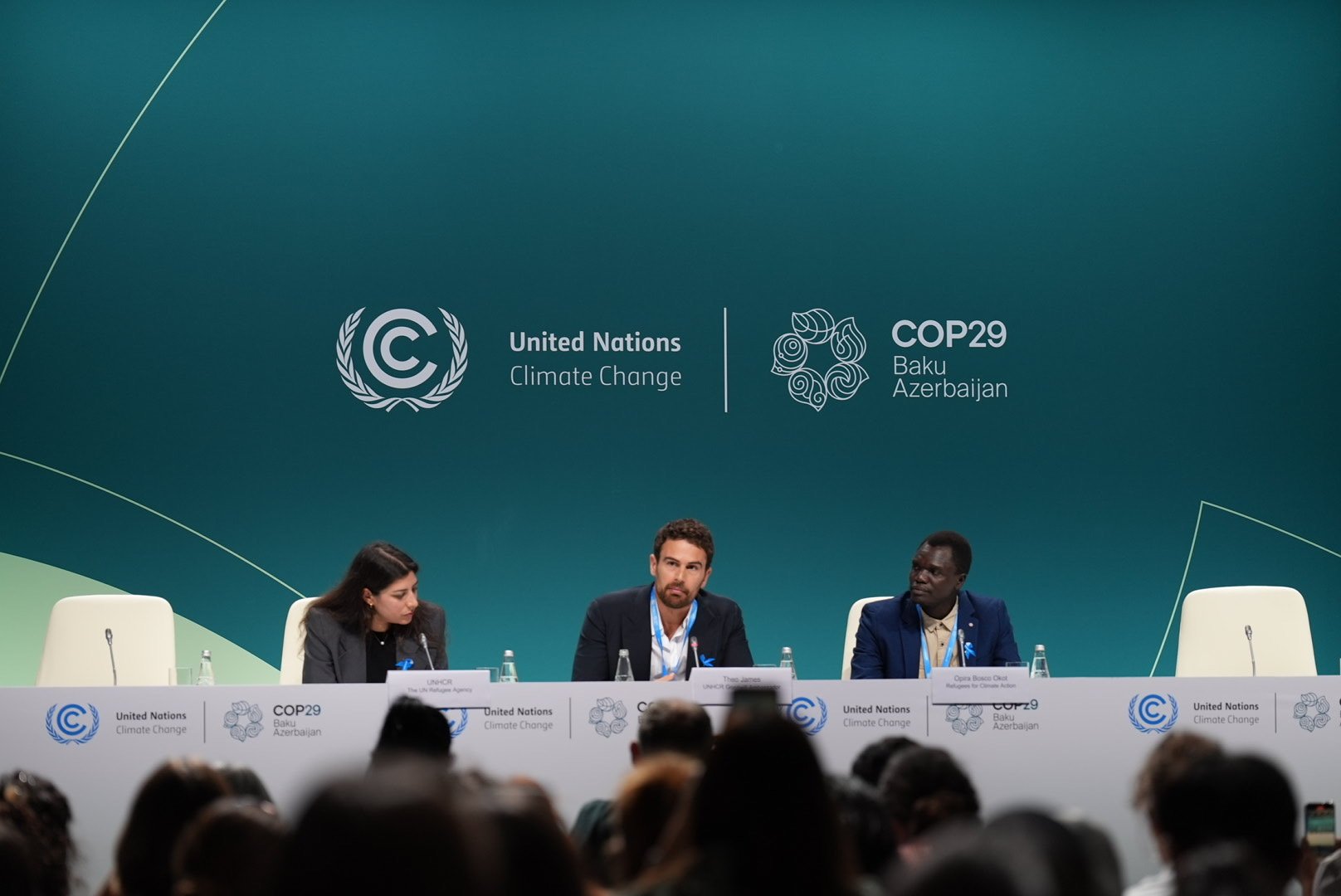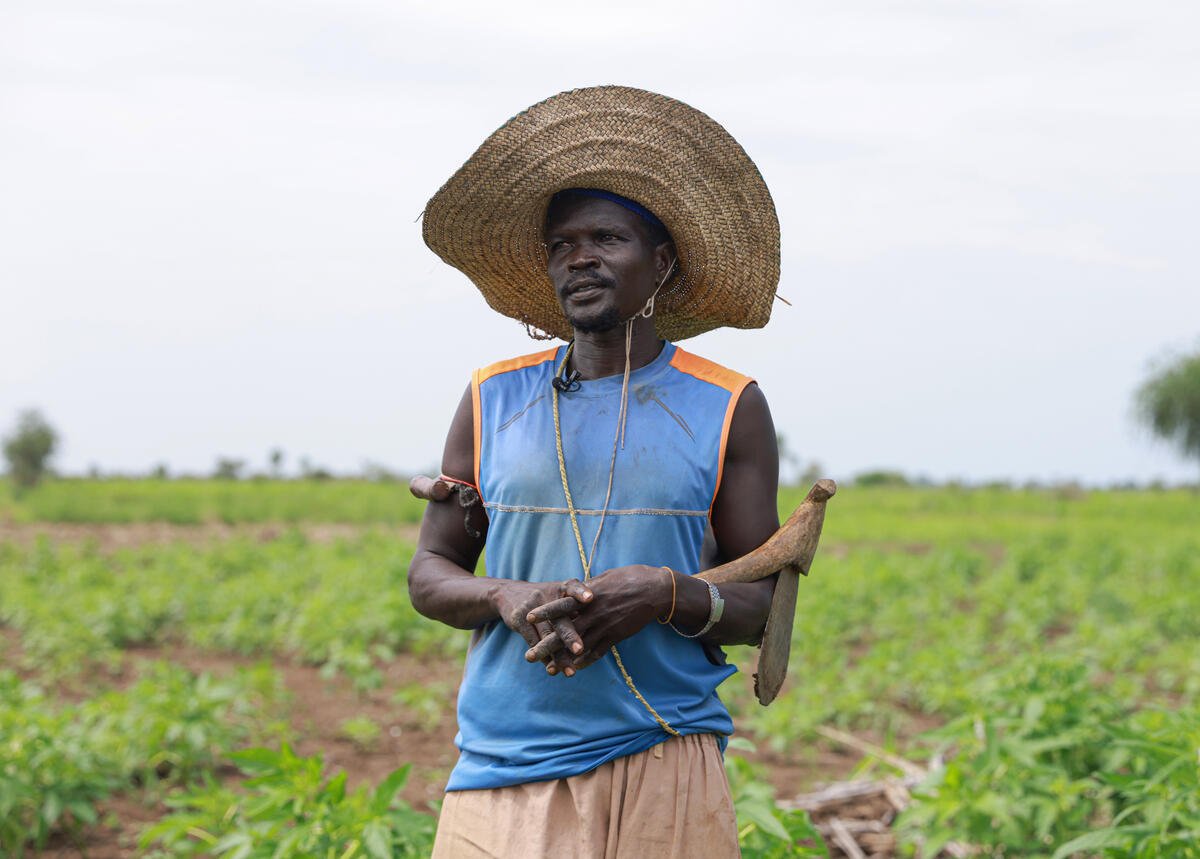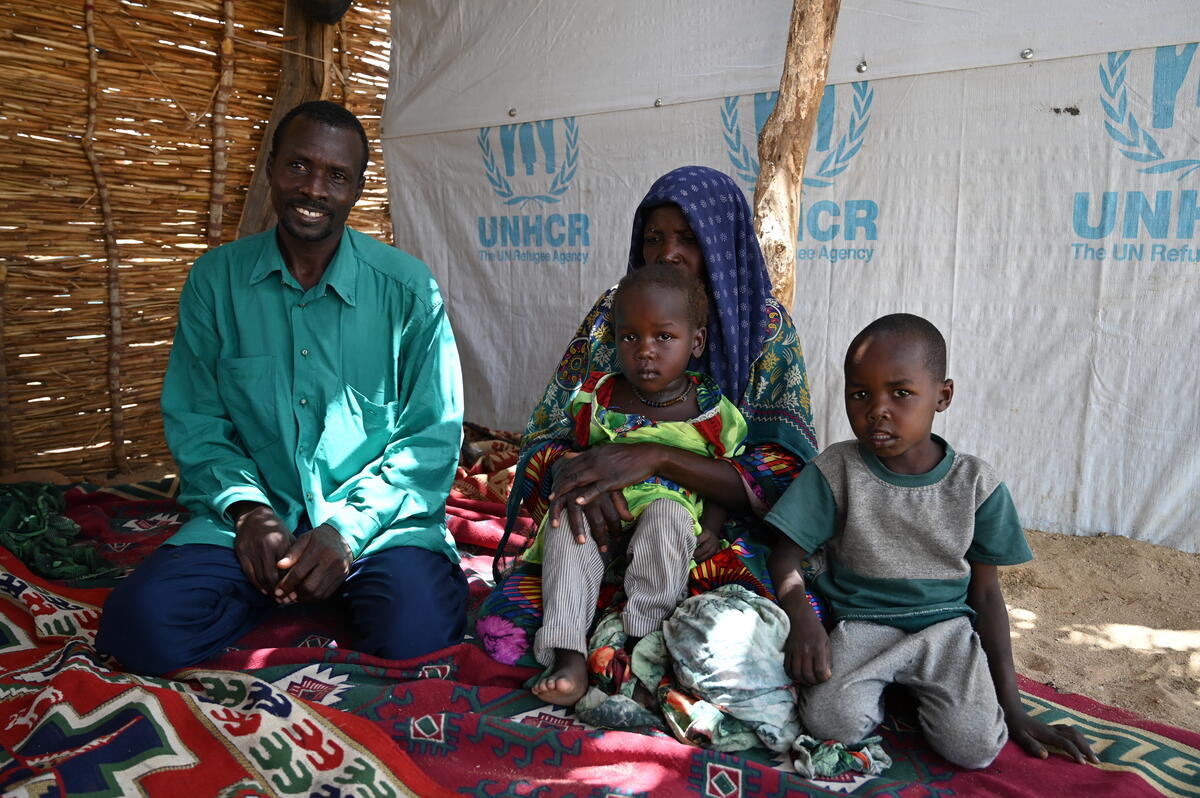Sport inspires in Kenya’s 'cradle of Refugee Olympic Team’
Sport inspires in Kenya’s 'cradle of Refugee Olympic Team’
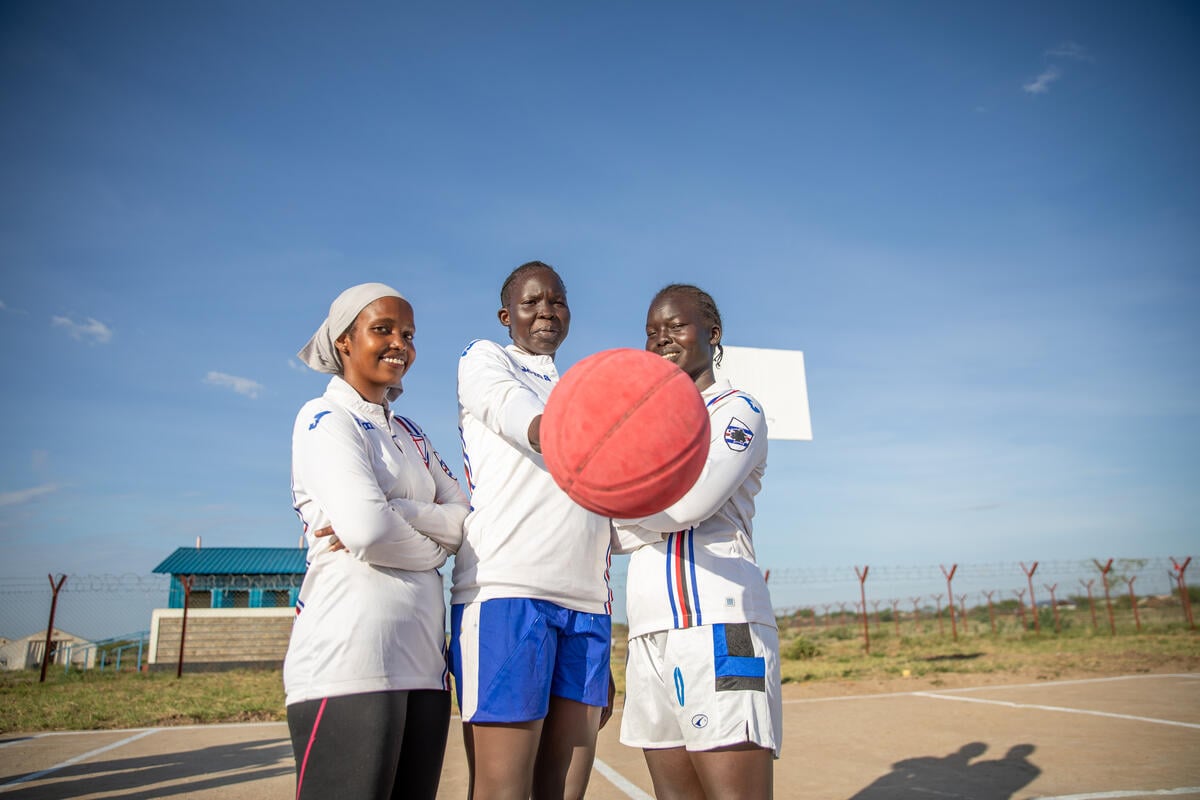
Saido Omar (left) on the basketball court at Kakuma camp with Doris (middle) and Nyagwa (right), two of the young women she coaches.
Beneath a blazing sun, the 25-year-old refugee from Somalia dribbled sharply, passed cleanly and dunked with authority, each netted ball emphasizing her dedication and joy. “Sport gives me a sense of belonging as a girl,” Saido said. “When I play, it affirms my right to play and opens wider opportunities for me.”
Established in 1992, Kakuma is home to more than 295,000 refugees, the majority young people, for whom sport provides an opportunity to develop athletic skills, to regain confidence and a sense of belonging, and to integrate more closely with the Kenyan host communities around them.
Sporting trailblazers
Saido was only 9 years old when her family arrived in the camp from Somalia, and she was not always so comfortable on the court as she is today. The first time Saido went to play in 2019, “I remember my coach not having anything suitable for me to wear, so he offered me a taekwondo outfit,” she said laughing.
At the time, no other Somali refugee girls played basketball and Saido is eager to inspire others to join her on court. “I love challenges! Being the only girl from my community playing basketball is a voice speaking to other girls out there,” she said.
“I have to show other girls who have the passion that ‘Saido did it, so I can too’. I want to be a voice for them so they can do whatever they want.”
Saido has also seen firsthand how sport can create even greater opportunities for some young athletes. When UNHCR, the UN Refugee Agency, the Olympic Refugee Foundation (ORF) and the International Olympic Committee (IOC) established the first Refugee Olympic Team to compete at the Rio 2016 Games, five out of its 10 members came from Kakuma.
“Kakuma refugee camp is the cradle of the Refugee Olympic Team,” said IOC President Thomas Bach during a recent visit to Kakuma camp with Filippo Grandi, UN High Commissioner for Refugees.
“Half of the first-ever Refugee Olympic Team trained here in 2016. It is also the cradle of many of the ideas that led us to the Olympic Refuge Foundation, putting sport at the disposal of both the host and refugee communities,” Bach said.
Grandi added: “The concept of sports as an instrument of inclusion as witnessed here in Kakuma, has become universally recognized as a critical element of bringing together refugees and communities that have hosted them for decades. This is, eventually, for the benefit of the whole society.”
Transforming lives
From martial arts to football, athletics to basketball, refugee sport is not only about staying active but bringing people together, offering belonging and purpose, and a way to forget daily troubles and the traumas of displacement.
“Sport is everything to us,” said Saido, who dreams of one day participating in the Olympics herself. “I love basketball because it is a way of keeping yourself fit and also a way of socializing with people from different backgrounds.
“It is a way of expressing ourselves, it is a way of getting opportunities outside the camp.”
Sport has the potential to transform refugee futures, offering pathways for some to opportunities such as scholarships or resettlement in other countries or even to competing at the international level. For girls and young women, sport can also be a way to escape risks such as early marriage or dropping out of school. “Access to sports is so important, especially for refugee girls,” Saido said.

Saido talks to girls at Kakuma Refugee Secondary School.
Running basketball coaching sessions for girls at weekends, Saido hopes to train and inspire others, and establish a strong team that can take part in international competitions. “I want to see a basketball academy full of Somali girls and other girls from different communities here in Kakuma,” she said.
Saido looks to the abilities on display in the Women’s National Basketball Association (WNBA) competition in the United States, saying, “I want to see Somali girls playing basketball at the WNBA level!”
“We have a lot of youth who have different talents, we have the potential to be there as refugees and we need to be given equal opportunities just like any other athlete,” she said.
"Sport is everything to us."



